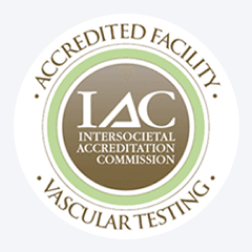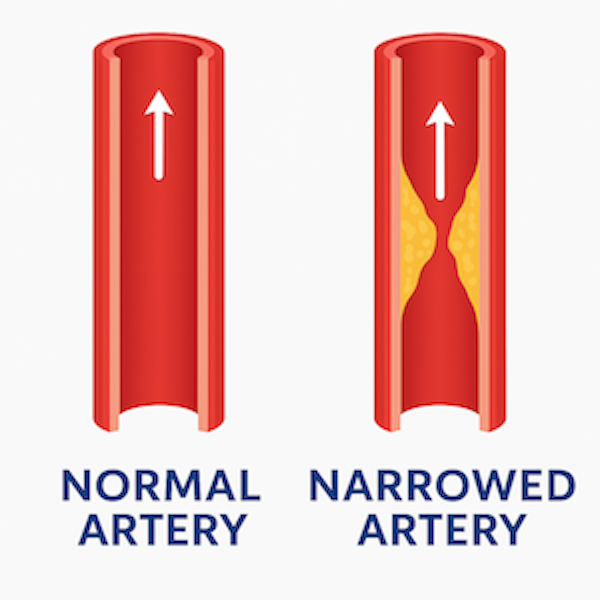DVT Symptoms in the Legs: What You Should Know
Deep vein thrombosis (DVT) occurs when a blood clot forms in a deep vein, most often in the legs. Because a clot can sometimes break...
Read More
At United Vein & Vascular Centers, we specialize in diagnosing and treating conditions that affect the arteries and blood flow throughout your body. Our board-certified vascular specialists use advanced, minimally invasive procedures to restore healthy circulation, reduce pain, and prevent serious complications.


Vascular disease affects the arteries, veins, and capillaries that carry blood throughout your body. When arteries become narrowed or blocked due to plaque buildup (atherosclerosis), oxygen-rich blood can’t reach vital organs or limbs — leading to pain, fatigue, or even serious complications such as peripheral artery disease (PAD).
Learn how we treat the underlying cause of vascular disease with our Minimally Invasive Vascular Treatments.

Vascular disease can develop silently, with symptoms that may appear mild at first but worsen over time. Recognizing these early warning signs can help prevent serious complications like limb pain, ulcers, or stroke.
Watch for These Signs of Poor Circulation:
If you’re experiencing any of these symptoms, our specialists can perform a noninvasive vascular screening to assess your circulation and determine the best treatment plan. Schedule a Consultation to learn more about your vascular health.
Vascular disease refers to conditions that affect the blood vessels — arteries, veins, and capillaries — that circulate blood throughout your body. When arteries become narrowed or blocked by plaque buildup (atherosclerosis), it restricts blood flow and can lead to pain, fatigue, or serious complications like peripheral artery disease (PAD).
The most common causes include high blood pressure, high cholesterol, diabetes, smoking, obesity, and a family history of circulatory problems. Over time, these risk factors can damage your blood vessels, causing poor circulation or even complete arterial blockages.
Symptoms often develop gradually and may include leg pain or cramping while walking, numbness, slow-healing sores, cold feet, or skin discoloration. These signs indicate reduced blood flow and should be evaluated by a vascular specialist as soon as possible.
At United Vein & Vascular Centers, we use noninvasive imaging tests, such as vascular ultrasound, to assess blood flow and detect blockages. These scans allow our specialists to pinpoint circulation issues quickly and create a customized treatment plan.
Yes. Maintaining a healthy lifestyle — exercising regularly, managing cholesterol and blood pressure, eating a heart-healthy diet, and avoiding smoking — can help reduce your risk. Routine vascular screenings can also detect early signs before symptoms appear.
Atherosclerosis occurs when fatty deposits (plaque) build up inside your arteries, causing them to narrow and harden.
Over time, this buildup reduces blood flow to vital organs and limbs, increasing the risk of heart attack, stroke, and peripheral artery disease.
It’s a systemic condition, meaning it can affect arteries throughout your entire body.
Peripheral Artery Disease is a specific form of atherosclerosis that affects the arteries in your legs and feet.
When blood flow becomes restricted, it can cause leg pain, cramping, cold feet, slow-healing wounds, or even tissue damage.
Early detection and treatment are essential to restore circulation and prevent serious complications like critical limb ischemia.

At United Vein & Vascular Centers, our board-certified specialists provide advanced, minimally invasive treatments designed to restore healthy circulation, relieve pain, and prevent serious complications from vascular disease.
All procedures are performed in-office under local anesthesia — meaning faster recovery, less risk, and no hospital stay required.
Our Most Common Vascular Treatments Include:
United Vein & Vascular Centers are nationally accredited (IAC) facilities that have undergone a thorough review of their technical and clinical standards by a panel of vascular experts. You can trust our team to deliver the highest level of care using advanced, image-guided technology.
Your vascular health and overall quality of life are our top priorities. Treatments for common vascular conditions — including peripheral artery disease (PAD), atherosclerosis, and chronic circulation issues — are typically quick, outpatient procedures with little to no downtime.
Now is the best time to take control of your circulation and protect your long-term health. Most major insurance providers cover vascular treatments. Our patient coordinators are happy to review your coverage and answer any questions you may have.